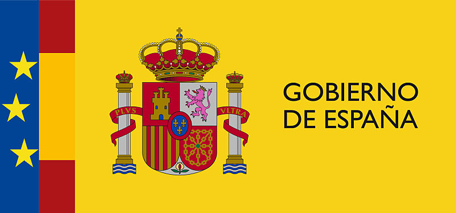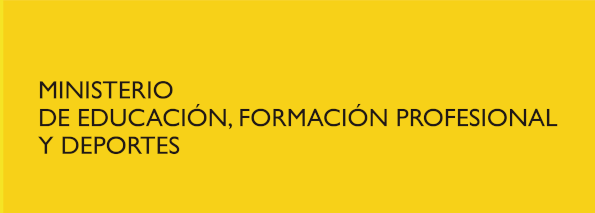International agencies
EUROPEAN UNIÓN
The European commission is composed of several Departments and various departments. Within the overall direction of education and culture, is the unity of sports, which is responsible for the following areas:
- Cooperation within the committee and with other institutions on matters related to sport.
- Cooperation with institutions, organizations and national sports federations and international.
- Bilateral meetings with institutions and sports organisations and international sports federations.
Normally the country which has the presidency holds an informal meeting of European ministers responsible for the sport.
Luxemburgo presided over the first half of 2005 and held an informal meeting of ministers on 28 and 29 April.
In the second half, the presidency is carried out by the Kingdom united and is provided for an informal meeting of ministers in Liverpool on 19 and 20 September.
Since 1 January Austria is responsible for directing sports policy of European Union.
COUNCIL OF EUROPA
The council of Europa is an international organization founded in 1949 by ten countries members. Gradually member countries have grown up now 46. Spain is a member since 1977.
Sports cooperation within the council of Europa develops in complementarity between governmental bodies and non-governmental organizations, under the committee for the development of sport (CDDS).
The council of Europa proposes to the member states a network of conventions and agreements that form the basis of a real and own “ European Law ”.
In the field of sport there are two conventions:
-
Convention on an integrated approach to safety, security and focus on the football and other sporting events (Convention number 218 of the board of Europa) done in Saint-Denis on 3 July 2016.
-
The Convention against doping, signing in 1989 and ratified by Spain in 1992.
There are two committees to verify the implementation of these two conventions:
- The Standing Committee (T-RV) of the convention against violence
- The monitoring group of the convention against doping (T-DO)
Spanish experts in the field are part of these committees and regularly attend meetings.
Every four years marks a conference of European ministers responsible of sport and generally an informal meeting of ministers in the intervening period.
The last conference of European ministers responsible for the Sport was held in Budapest on 14 and 15 October 2004. The main theme of the conference was “ good governance in sport ”.
In October 2006 is scheduled for a “ informal meeting of European ministers of sport, ” in Moscú.
UNESCO
The United Nations Organization for education, science and culture (UNESCO) was born on 16 November 1945.
The UNESCO deploys its action in the fields of education, natural sciences and accurate, social and human sciences, culture, communication and information.
The mission of the UNESCO within the framework of the promotion of physical education and sport is based on the general and specific objectives of the international charter of physical education and sport, adopted by the General conference of the UNESCO, in his 20 meeting, held in Paris in November 1978.
The intergovernmental committee for physical education and sport (CIGEPS) is created within the UNESCO, in 1979, with a view to coordinate, promote and disseminate the action in the field of physical education and sport. The aim was to introduce new methods for consultation and cooperation, more flexible and cost effective, in the area of physical education and sport.
The interest of the UNESCO by physical education and sport is also shown in the I international conference of ministers and senior officials responsible for physical education and sport (MINEPS), which was held in Paris, in 1976 and that was the origin of a process of elaboration on an international scale of a development strategy of physical education and sport, regarded as an essential aspect of the right to education, a dimension of culture constitutive of humanism modern and a key element of the training harmoniously of man. Until 1988, in Moscú, not be held the II MINEPS. And in 1999, Uruguay, took place the III MINEPS
In December 2004, was held the IV MINEPS, which was debated among others the draft international convention against doping in sport and which adopted the breakfast buffet Declaration, pledging to “ bring into force coherent policies and take concrete action for development of physical education and sport ”.
From 3 to 21 October, was held in Paris the 33 General Conference of the UNESCO and one of the topics discussed was the draft international convention against doping, approving the day 19 October. At this moment the convention is awaiting ratification.
WADA/LOVES
The world conference on doping in sport, which was held in Lausanne in February 1999, led to the declaration of Lausanne on doping in sport. In this document provides the creation of an independent anti-doping international agency, which should be fully operational for games of the XVII Olympiad, held in This, in 2000.
The World Anti-Doping Agency was created to promote and coordinate the fight against doping in sport at the international level. The LOVES has become founding on the initiative of the International Olympic Committee (PROFIT), with the support and participation of intergovernmental organizations, governments, administrations and other public and private agencies involved in the fight against doping in sport.
The World Anti-Doping Code is the founding document of the World Anti-Doping Program. It Is the first document that seeks to harmonise the rules relating to doping in various countries of the world and in the various sports disciplines. It is a fundamental document which constitutes the framework of policies, rules and regulations in the fight against doping both sports organizations such as public authorities.
Most of the sports federations and nearly 80 Governments around the world have adopted the World Anti-Doping Code. Spain has joined with the signing of the declaration of Copenhague and subsequently, in June 2005, accepted the WADA Code.
In the year 2007 will be held in Madrid the world conference on doping in sport of WADA will identify trends of the agency in terms of doping.


